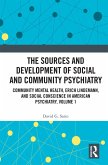Much of contemporary medical theory and practice focuses on the identification of specific causes of disease. However, this has not always been the case: until the early nineteenth century physicians thought of diseases in quite different terms. In the 1830s, fifty years before Koch's publications on tuberculosis, specific causes were being identified for several non-bacterial diseases including scabies, muscardine and ringworm. By the end of the century, the quest for specific causes had spread well beyond bacterial diseases. The expanding research programme included Freud's early work on psychopathology, the discovery of viruses, the discovery of vitamins, and the recognition of genetic disorders such as Down's syndrome. Existing historical discussions of research in these areas, for example, histories of work on the deficiencies diseases, take the view that success in bacteriology was a positive obstacle to the identification of causes for other kinds of diseases. Treating the quest for causes as a single coherent research programme provides a better understanding of the disease concepts that characterise the last 150 years of medical thought.
Dieser Download kann aus rechtlichen Gründen nur mit Rechnungsadresse in A, B, BG, CY, CZ, D, DK, EW, E, FIN, F, GR, HR, H, IRL, I, LT, L, LR, M, NL, PL, P, R, S, SLO, SK ausgeliefert werden.









